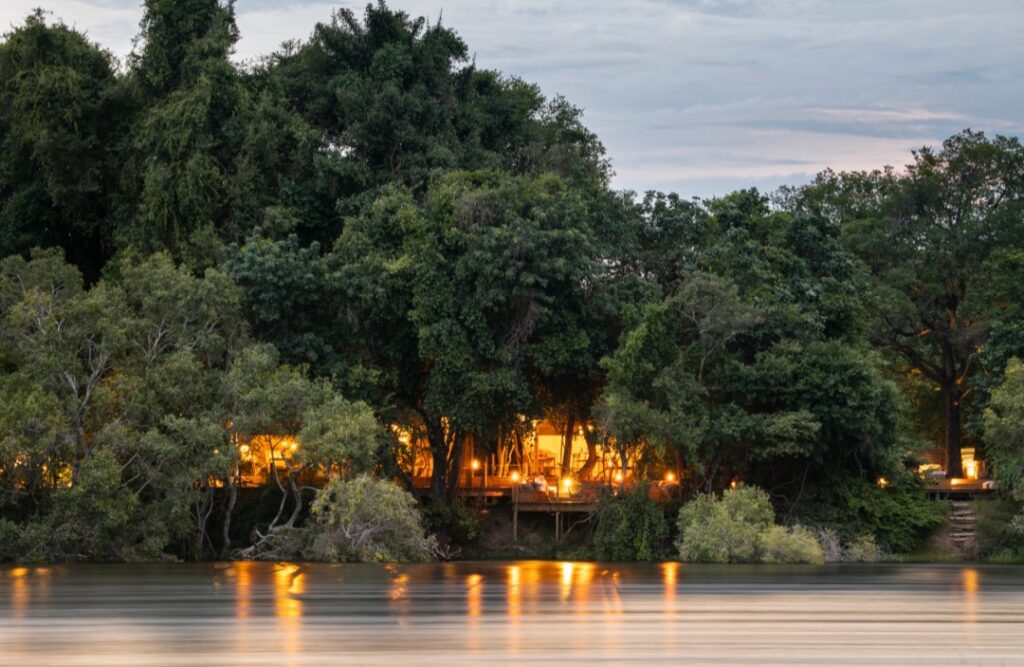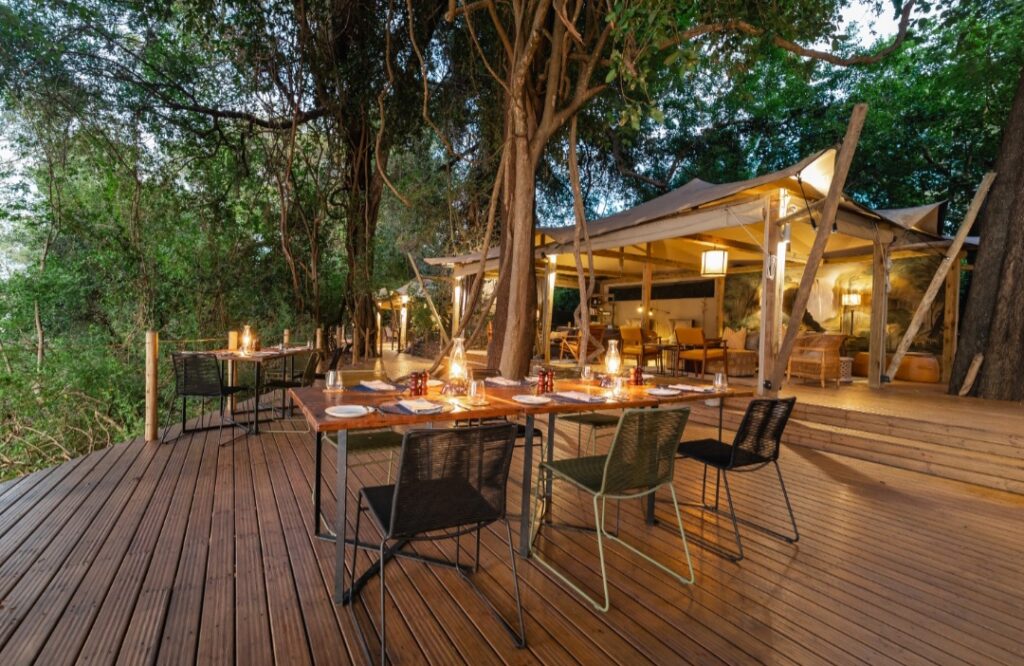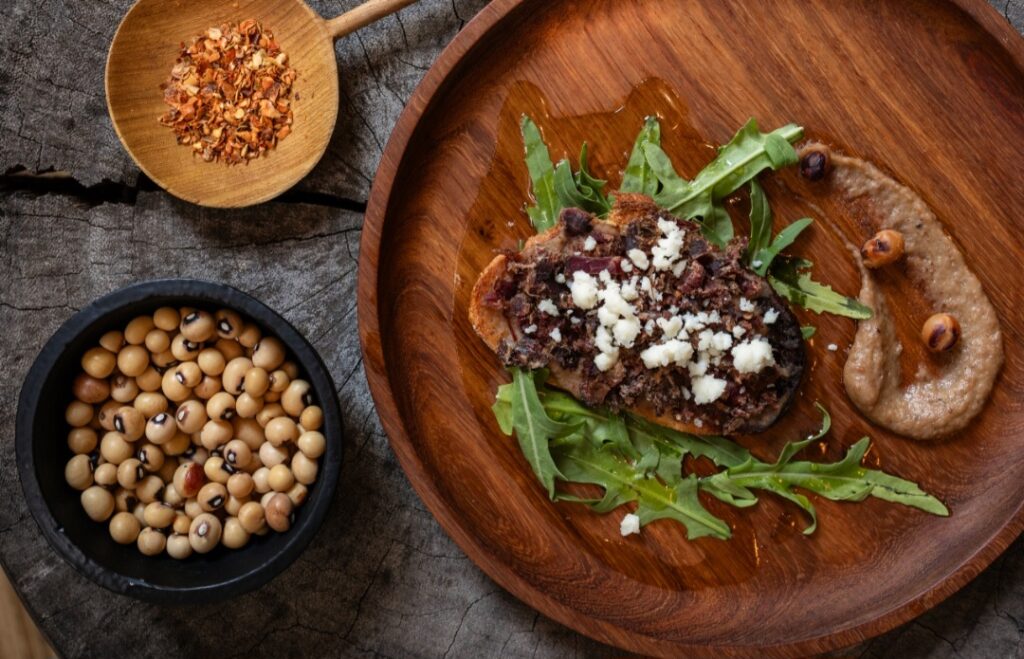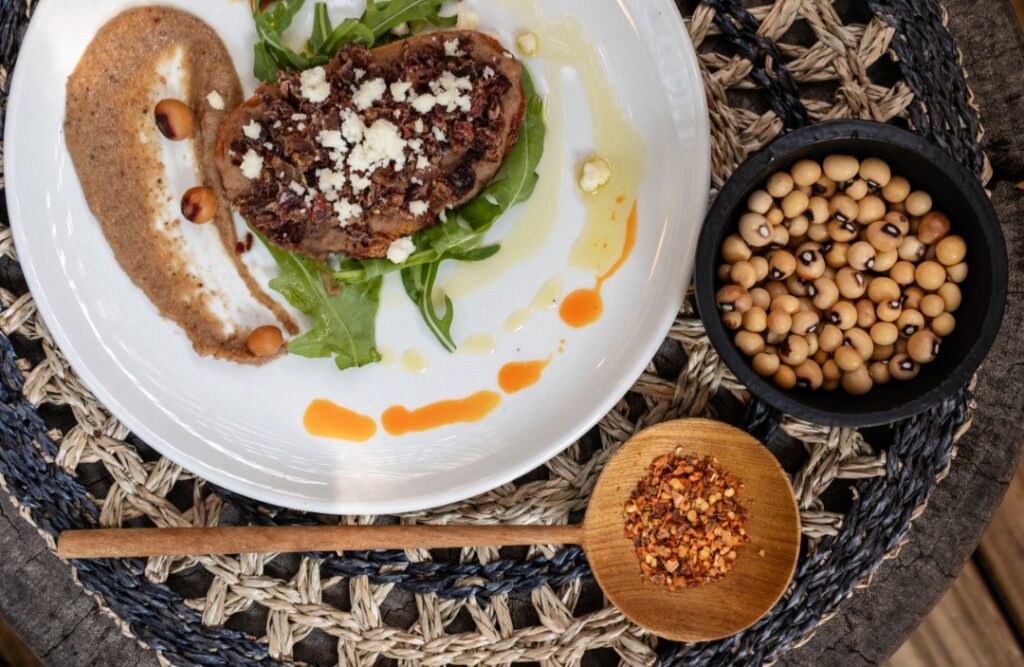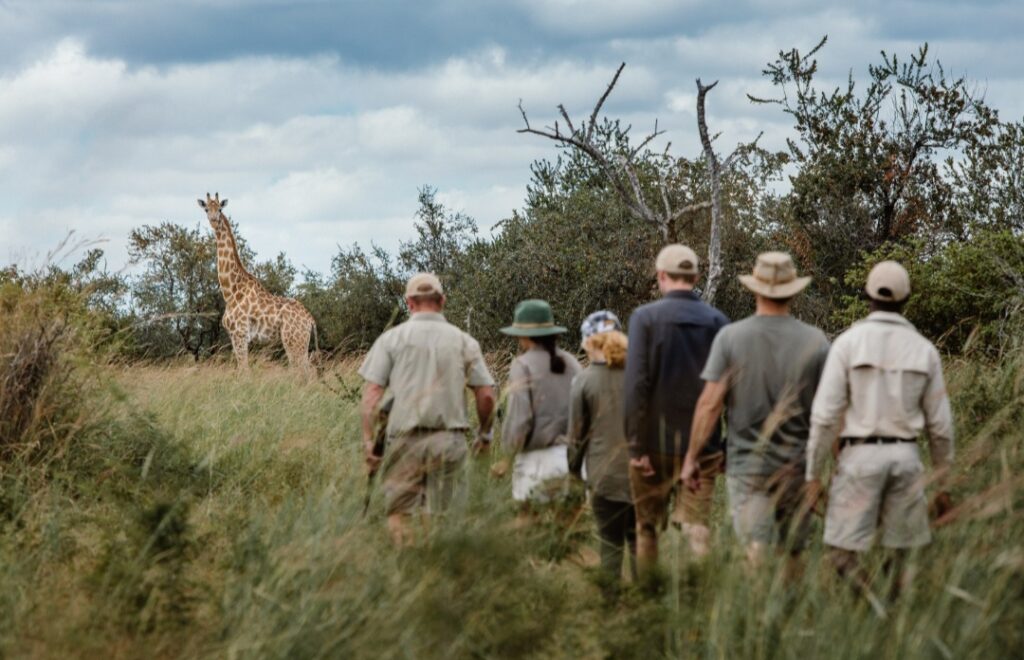In the middle of the mighty Zambezi River, beneath the canopy of indigenous riverine trees, Tsowa Safari Island offers a dining experience where nature, culture, and sustainability meet in harmony. While the lodge itself is surrounded by lush greenery, guests can encounter the island’s magnificent, centuries-old baobab trees on a guided walk – iconic silhouettes that have stood as silent witnesses to the rhythms of the river for generations. These living landmarks are more than just striking scenery; at Tsowa, they are celebrated in both story and flavour, inspiring dishes and drinks that capture the essence of Africa.
One of the first tastes guests encounter is the island’s signature Baobab and Amarula cocktail, a creamy blend of baobab powder, brown sugar, milk, and ice, swirled with South Africa’s famous cream liqueur – the fruit’s tangy, citrus notes also appear in a luscious baobab cheesecake.
Under the direction of Isibindi Africa’s Executive Chef Carl Moller, the kitchen celebrates Zimbabwe’s culinary heritage while keeping sustainability at its heart. Chef Moller’s “food of the future” philosophy champions unprocessed, ethically sourced produce, with a focus on freshness and honest flavour. Almost everything comes from within the region – from hydroponic farms near Victoria Falls to small-scale producers along the Zambezi.
- Herbs and greens come from a local riverside farm.
- Zimbabwean beef, grass-fed and full-flavoured, is a menu highlight.
- Crocodile is sourced from a local Zambezi farm.
- Coffee is 100% community-grown Zimbabwean.
Even the island’s own herb garden has a story. Co-owner Duncan Elliot built it from leftover construction materials and screened in shade-cloth to keep inquisitive monkeys out and nourished with compost from kitchen scraps. Old mokoros salvaged from floods once served as planting beds, and now recycled tyres take their place. It’s an ongoing, creative expression of self-reliance.
The menus are full of local favourites with inventive twists. Breakfast might feature Indumba baked beans – cowpeas from Chinotimba market, slow-cooked in a tomato sauce. Lunch could be Nyimo bean hummus with marinated artichokes, locally baked sourdough bruschetta, and fresh rocket.
Dinner menus tell even deeper stories:
- Pan-seared crocodile strips in a light peri-peri cream sauce, with croutons and dressed greens.
- Lemon and herb marinated Zambezi bream with roasted tomato sauce, cucumber salsa, tartare, and Tsowa’s playful “Sadza Fries” – a Zimbabwean take on fish and chips.
- Indumba mufushwa risotto – creamy Italian risotto layered with the flavour of dried cowpea leaves cooked the traditional Zimbabwean way with onion, tomato, and peanut butter.
Hearty soups, such as Nyimo bean and bacon, offer a comforting taste of home, while desserts like the developing Chimodho apple pie – inspired by maize bread – speak to the lodge’s creative curiosity.
For Chef Moller and his team, sustainability isn’t a marketing phrase; it’s a way of life. Partnering with local farmers and markets reduces food miles, supports livelihoods, and ensures that guests enjoy ingredients at their freshest. Vegetables are grown without harmful methods, fish is farmed responsibly, and even the salt comes from the Kalahari Desert.
Dining at Tsowa Safari Island is woven into the safari experience. Mornings might begin with coffee brewed from Zimbabwean beans and breakfast under the trees, before a game drive or a gentle walk to the baobabs. Lunch is served to the soundtrack of the flowing Zambezi, and evenings close with lantern-lit dinners, where the flavours of Zimbabwe are paired with the soft hush of the bush.
Every dish reflects Tsowa’s core values: authenticity, connection, and care for the land. And just as the baobabs have stood for generations – deep-rooted, enduring, and full of life – so too does the island’s commitment to celebrating the wild, in every sense of the word.
FACT BOX:
Baobab – The Tree of Life
- Age & Size: Baobabs can live for more than 1,000 years and grow trunks up to 14 metres wide. Some on Tsowa Safari Island have stood for centuries.
- Cultural Significance: Revered across Africa for their resilience and life-giving properties, Baobabs feature in local folklore as symbols of wisdom and community.
- Nutritional Powerhouse: Baobab fruit pulp is rich in vitamin C (up to six times more than oranges), antioxidants, potassium, and calcium.
- Ecological Role: Baobabs provide food and shelter for birds, bats, monkeys, and insects, and store water in their trunks to survive droughts.
- Culinary Use at Tsowa: Used in welcome cocktails, desserts like cheesecake, and health drinks such as the “Baobab and Turmeric Pick Me Up,” bringing a tangy, citrus-like flavour to the menu.
For reservation inquiries, please contact reservations via email at res@isibindi.co.za or on +27 35 474 1473, or visit www.isibindi.co.za.



